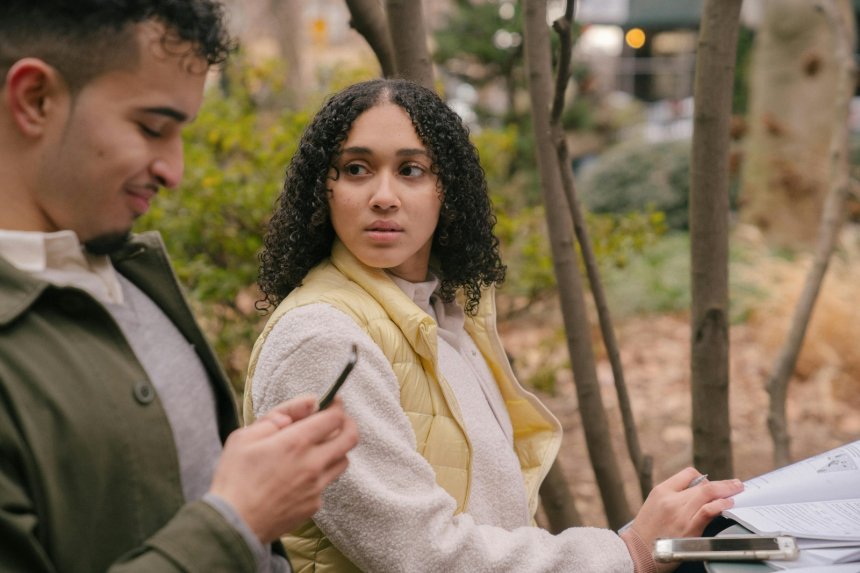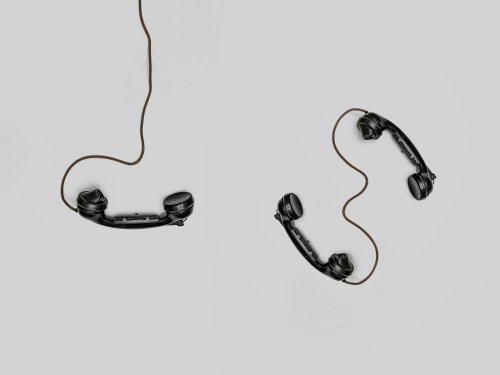Trick Questions to Catch a Cheater: 15 Clever Ways to Expose Lies
Suspect cheating? Use these 15 trick questions to catch a cheater. Learn clever ways to expose lies, spot inconsistencies, and uncover the truth today!

Something feels off. Your partner's behavior has changed; they're suddenly protective of their phone, and your gut is screaming that something isn't right. You've noticed inconsistencies in their stories, unexplained absences, and a growing distance between you. Now you're searching for trick questions to catch a cheater because you need to know the truth.
I understand how painful this situation is. Suspecting infidelity creates a special kind of agony where you're caught between hoping you're wrong and needing to confirm what your instincts are telling you. The uncertainty can feel worse than knowing the truth. While I hope your suspicions are unfounded, having strategic questions ready can really help you uncover lies through inconsistencies and contradictions.
Let me share fifteen trick questions to catch a cheater that work by creating situations where liars reveal themselves. I'll explain what to listen for in their answers and what signs indicate deception.

Why Do Trick Questions Work?
Before diving into trick questions, let's understand the psychology behind why these work. When someone tells the truth, their story remains consistent because they're recalling actual events. However, when someone lies, they're creating a narrative they must remember and maintain. Therefore, trick questions work by asking for details from different angles, making it nearly impossible for a liar to keep their story straight.
Additionally, these questions catch cheaters off guard. They've prepared answers for direct questions like "Are you cheating?" but they haven't rehearsed responses to seemingly innocent questions that require specific details. Consequently, their answers often contain contradictions, hesitations, or defensive reactions that reveal dishonesty.
15 Trick Questions to Catch a Cheater
1. "What did you have for lunch yesterday?"
This seems totally innocent but serves an important purpose. If they claim they ate alone at their desk, but you suspect they were with someone else, this question establishes a baseline. Later, you can circle back with follow-up questions about their day that might contradict this answer. Watch for excessive detail or complete vagueness, as both can indicate lying.
2. "Who was that text from?"
Ask this casually when their phone buzzes. An innocent person answers directly without hesitation. A cheater often gets defensive, dismisses the question, or provides an unnecessarily detailed explanation when a simple name or designation of the sender would've sufficed. If they consistently refuse to share who's contacting them, privacy suddenly matters more to them than transparency. That's saying something.
3. "Tell me about your day, starting from when you woke up"
This requires them to create a timeline. Listen carefully and ask follow-up questions about specific parts later. If they're lying about where they were or who they were with, maintaining a consistent timeline becomes difficult. Therefore, pay attention to any gaps or vague descriptions of certain periods during their day.
4. "I thought I saw your car at [location] yesterday. Was that you?"
Pick a location they claim they didn't visit. An innocent person will immediately correct you or express confusion. A cheater, on the other hand, might panic, ask what time you saw them, or try to figure out if you actually saw them before answering. Watch their body closely when you prop up this question, as physical reactions often reveal more than words.
5. "What time did you leave work?"
If you suspect after-work affairs, this question, combined with tracking when they actually arrived home, reveals important discrepancies. A truthful person gives straightforward time. A liar might be vague, get defensive about you checking up on them, or provide a time that doesn't match when they got home.
6. "Can I see your phone real quick to check something?"
This one isn't about invading their privacy but observing their reaction. An innocent partner hands over their phone without panic. A cheater often refuses, gets angry about trust, quickly checks their phone before handing it over, or claims the battery died. If they suddenly start password-protecting everything after previously being open, that's a red flag.

7. "My friend said they saw you at [place]. What were you doing there?"
Similar to question four, but adds social pressure through mentioning a friend. If they weren't actually there but claim they were somewhere else, they'll either admit they lied about their location earlier or scramble to explain. So, inconsistencies like that are important revealers of potential deception about their whereabouts. Would a faithful partner do such a thing? Think about it.
8. "How's [person you suspect] doing? You mentioned them before"
If you suspect someone specific, casually bringing them up may reveal strange reactions. An innocent will discuss them normally. A cheater is bound to become uncomfortable or defensive. They may start claiming they barely know them despite previous mentions or may change the subject altogether. Note if they suddenly stop mentioning this person entirely after being casual about them before.
9. "What's your phone password? Mine died, I need to look something up"
This catches cheaters because they've either changed it recently without telling you, or they panic at the thought of you accessing their device. An innocent partner shares it freely. A cheater makes excuses, offers to look it up themselves, or gets angry about the invasion of privacy despite previously sharing passwords.
10. "Let's do something spontaneous this weekend, no plans necessary"
Cheaters often need advance notice to coordinate their lies and alibis. Suggesting last-minute plans that require them to be available reveals whether they have secret commitments. If they consistently resist spontaneity or need to check something before agreeing, they might be coordinating with someone else.
11. "I was thinking about that weekend you went to [place], what hotel did you stay at?"
If they claimed a work trip or visit somewhere alone, asking for specific details weeks later tests their memory. Liars forget details of fabricated stories. So if they can't remember basic information about a supposedly important trip, they might be lying about where they actually were or who they were with.
12. "Your friend called earlier looking for you. What should I tell them?"
This works when no one actually called. An innocent person simply says to call them back or asks what the friend wanted. A cheater starts immediately worrying, trying to figure out which friend and what they might have revealed. If they immediately call someone to verify or seem excessively concerned, they might be worried about their story being exposed.
13. "Can we go through our phone bills together? I think there's an error"
Cheaters communicate frequently with their partners, often during specific times or to specific numbers. Suggesting reviewing bills together makes them worry about explaining excessive contact. A faithful partner, who's not cheating on you, will agree without concern. A cheater makes excuses about privacy, claims bills are boring, or offers to review them alone.
14. "What was that notification on your phone? I saw it pop up"
When you didn't actually see anything, it tests their honesty about phone activity. If there wasn't one, a loyal partner will tell you or show you their phone. However, a cheating partner will quickly check their phone to make sure it wasn't something that exposes their affair. Again, they could claim it was nothing or get defensive about you watching their notifications or keeping an eye on them.
15. "I feel like we've been distant lately. What's going on with you?"
This open-ended question creates space for honesty. An innocent partner who's been genuinely busy or stressed opens up about what's bothering them. A cheater makes this a hostile situation by either deflecting or blaming you for being paranoid; they may even get angry that you're questioning the relationship. Furthermore, cheaters often project guilt by accusing you of the very thing they're doing.
What to Look for in Their Answers
Beyond the specific questions, understanding signs of deception helps you evaluate responses. To reiterate the point, you need to, first and foremost, watch for inconsistencies between answers given at different times. If details change or stories don't align, something's definitely wrong.
Additionally, pay attention to defensive reactions (of which you may get many if you ask these trick questions). Sure, innocent people are hurt that you doubt them, but don't typically become aggressive or turn accusations back on you. Cheaters often respond with anger, deflection, or making you feel guilty for asking questions.
Notice excessive details or complete vagueness. Liars often overexplain to seem convincing or provide no details to avoid being caught in specifics. Therefore, both extremes warrant suspicion compared to natural, moderate detail in truthful answers.
Watch body language closely. Avoiding eye contact, fidgeting, touching the face or neck, and closed-off postures often accompany lies. Moreover, if their verbal answers say one thing but their body language suggests discomfort, trust the nonverbal cues.

What to Do After?
If these trick questions to catch a cheater confirm your suspicions, you need to decide your next steps very carefully. First, gather concrete evidence before confronting them directly. Cheaters deny until proof is undeniable, so having specifics prevents gaslighting.
Consider whether you want to work through infidelity or end the relationship. Both choices are valid depending on circumstances, your values, and whether they show genuine remorse. Just make sure not to make any major decisions while emotions are running high. Take time to process what you've learned.
Seek support from trusted friends, family, or a therapist. Discovering infidelity is traumatic, and you need people who can help you process emotions and think clearly. So, professional guidance can help you navigate these complicated emotions and decisions about your relationship's future.
If you decide to confront them, do it when you're calm and have evidence. Present facts rather than accusations based on feelings. Their reactions to being caught will tell you everything about whether rebuilding trust is possible. Genuine remorse looks different from being sorry they got caught.
Conclusion
Using trick questions to catch a cheater isn't about playing games or being manipulative. It's about protecting yourself when you suspect dishonesty and need clarity. Trust your instincts. If something feels wrong to you, it probably is. These questions simply help reveal what your gut already knows.
Remember that even if your suspicions are confirmed, this isn't about worth or desirability. Cheating reflects the cheater's character, not your value. You deserve honesty, loyalty, and a partner who respects your relationship. Whether you end up discovering your partner's infidelity or that your fears are unfounded, prioritize your well-being and make decisions that honor your self-respect. Trust is the basic foundation of a healthy relationship, and you have every right to seek the truth when that foundation feels shaky.
Share
What's Your Reaction?
 Like
0
Like
0
 Dislike
0
Dislike
0
 Love
0
Love
0
 Funny
0
Funny
0
 Angry
0
Angry
0
 Sad
0
Sad
0
 Wow
0
Wow
0















